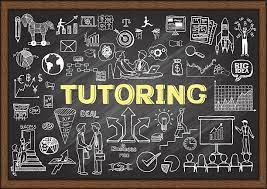5 Ways to Supercharge Your Students’ Study Skills
The ability to study effectively and autonomously is crucial for success in any learning situation.
As an ESOL tutor who teaches adult learners with varied educational histories, I see this all too clearly in my classes.
Learners with well-developed study skills can organize their time, prioritize tasks, and make progress faster than those who are new to education.
Here are some tried and tested ways to incorporate study skills into your classroom.
1. Let students share ideas
Over the years, I’ve found that one of the best ways to encourage learner autonomy is to let them do it themselves.
Allow time in class for students to share their own study tips with each other. This can be through structured discussions or as a follow-up to a reading or listening activity on the topic.
Students often have similar challenges to overcome, so they are best placed to give each other ideas on what works for them.
They also know exactly what they like and can recommend the best apps, websites, videos, graded readers, and other resources.
It was during an idea-sharing discussion like this that I was surprised to learn that YouTube is one of my students’ favorite ways to learn a language.
Ellii’s Grammar Video Playlist is an example of something your students may like for self-study.
2. Explore note-taking options
There are lots of different ways to take notes, but structuring notes well and having a system can really enhance the learning experience.
When students are first developing their note-taking skills, I find that drawing a huge notebook on the whiteboard and using it to demonstrate layout works really well for this.
I can then lay out my whiteboard exactly as I want students to copy it to their notebooks.
You may also ask students to consider:
- keeping separate notebooks (or sections of a notebook) for vocabulary, grammar, phonics, pronunciation, messy notes, etc.
- using different colors of pen to highlight key points
- re-writing their notes after class
- looking at other students notebooks for ideas
- “sketch noting” (e.g., adding simple drawings to illustrate key points)
- using visual tools such as mind maps, diagrams, charts, and graphic organizers
Try this related Writing in English lesson on How to Take Notes.
3. Work on time management
Time-management skills are essential for balancing academic and personal tasks. They can also make larger goals more manageable by breaking them into smaller steps and ensuring learners meet their deadlines.
You can:
- praise good timekeeping in class
- support students to create a study schedule
- introduce them to digital tools such as online calendars and task list planners such as Trello
- discuss, plan, and review their language learning goals regularly
4. Consider well-being
People learn best when they are relaxed and in a comfortable environment. Developing good study habits can support this.
In class, ask students to consider how they learn best. Ask them to discuss the following.
Their perfect study environment:
- What furniture do they need?
- What stationery, books, or devices do they need?
- Do they prefer a quiet space or a bit of background noise?
Their perfect study time:
- Is there a particular time of day they like to study?
- How often do they take breaks?
- What do they do when they take a break?
- Do they have a study schedule?
In general, having consistent study habits, and sticking to them, can work well. Encourage students to get into a routine with their studies and to take regular breaks to allow their brains to focus and retain information. Having a designated, quiet place to study with the right stationery is invaluable too.
5. Look for natural learning opportunities
Language development is more successful when learners have a chance to practice their skills. Encourage them to try to do this as much as possible outside the classroom. This will make it much simpler for them to remember what they’ve learned and give them confidence to use their English.
If your learners live in an English-speaking country, class trips, community visits, volunteering, work, and internships can be excellent ways to practice their English and learn new skills. You may wish to invite recruiters, charities, or local organizations to your classes to present their opportunities. This in itself is an opportunity for learners to practice their English.
If your learners don’t live an English-speaking country, there are still plenty of ways to help them practice. You could encourage them to meet the other class members socially outside of class and try to speak in English when they are together. For young learners, speak to the parents and try to arrange extracurricular events. Incorporating activities such as drama, songs, or stories in English can give structure and added opportunities to practice.
You could also look online. Websites such as Meetup.com often have language exchange events all over the world. Plus, there are lots of social media groups where learners can meet other English users. Encourage them to join online groups based around their interests.
If you’d like more ideas for study skills, you may also check out Ellii’s Learning & Thinking Skills collection. You may also want to use this lesson on Study Skills with your B1–B2 (intermediate–high intermediate) learners.
Source: Ellii.com
Cc: Emily Bryson




